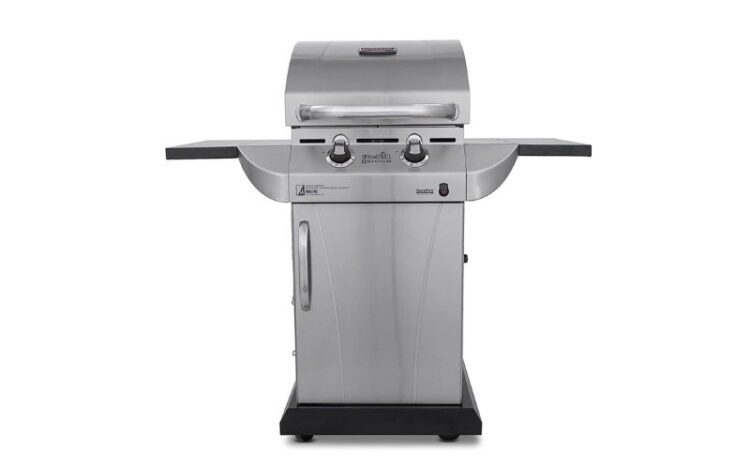The science of getting that perfect sear and flavor while grilling is an art that has developed over many ages. Infrared grilling has been increasingly popular in recent years, both among home cooks and chefs in restaurants. In this post, we will discuss what infrared grilling is, the benefits it has over conventional cooking, and how to use an infrared grill like an expert.
How does Infrared Grilling work?
Infrared grilling is a modern cooking technique that uses intense infrared heat to prepare food. Infrared grills employ a ceramic or metal plate, also called an infrared emitter, to radiate strong heat directly onto the food, as opposed to regular grills, which rely on hot air to transfer heat from the grates to the food. Using this technique, you may cook food quickly and evenly, resulting in more flavorful, tender meats and vegetables.
Why Infrared Grills Are Better?
Several factors have contributed to the infrared grill’s growing fan base:
Quick Preparation and Cooking
The speed with which infrared grills heat up is one of its most notable qualities. They heat up quickly and can be used for searing steaks, burgers, and other meats. Because of the quick heating, you can get dinner on the table much sooner.
Retaining Heat
Infrared grills are the best at keeping the heat in. When the oven reaches the set temperature, it stays there for the duration of the cooking procedure. Reduced temperature swings imply more evenly cooked food with fewer scorched patches.
Flavoring With Real Smoke and Wood
Real fire is used in most infrared grills, and wood chips or chunks can be added for flavor. The precision and efficiency of infrared technology are combined with the smoky flavor of classic grilling for the best of both worlds.
More Even Heating with Reduced Use of Open Flames
All of the food on an infrared grill will be cooked at the same temperature. You may regulate the degree of searing by limiting the amount of direct heat that touches your meal. As a result, the outside becomes beautifully caramelized while the interior remains juicy.
Professional Infrared Grilling: Do’s and Don’ts
For infrared grilling to taste as good as it looks, it’s important to pay close attention to detail and learn as much as possible about the grilling apparatus. If you want to master the grill, consider these suggestions:
What to Consider When Purchasing a Professional Grill
Size and Design of Grill Be sure the grill you buy has a large enough cooking area and is well-suited to your needs.
Types and capacities of Burners and Propane Tanks: Pick a barbecue that has enough burners and gas to meet your needs. It’s important to choose the right size gas tank.
Professional grilling requires a high-quality ignition system and safety measures, such as an automated shutoff and flame tamers.
Maximizing the Grill’s Performance
Cleaning and maintaining the grill is essential for avoiding flare-ups and achieving consistent cooking temperatures. Use the product’s recommended cleaning method.
Adjust the grill’s temperature and cooking time before you start cooking. Steaks and burgers should be cooked on high heat, chicken and vegetables on medium, and fish and other delicate foods on low heat.
Grilling at a Consistent Temperature Keep an eye on the temperature of your food while it cooks and adjust the grill’s heat as necessary.
Best Practices and Temperature Zones
Place thick slices of meat, such as steaks or burgers, in the high heat zone (direct fire). When grilling directly, the lid should be left open.
Cooking Larger Pieces of Meat or Finishing Items That Need Gentle Cooking After Being Seared Requires a Low-Heat Zone (Indirect Fire). For indirect grilling, make sure the lid is closed.
Locate the optimal temperature range in which your grill performs optimally, sometimes known as the “sweet spot.” Most infrared grills reach temperatures of 260–370 degrees Celsius (500–500 degrees Fahrenheit).
Learn how to adjust the temperature controls on your grill so you can cook at just the right temperature every time.
Once you’ve determined the optimal preheat setting for your grill, mark it or make a note of it so you can use it again in the future.
Covering your grill when it’s not in use and keeping up with regular maintenance and cleaning will help it last for many years.
Methods for Preparing a Variety of Baked Goods, Meats, and Seafoods
The versatility of infrared grilling means that it may be used for everything from juicy steaks to crisp pizzas. Here are several methods for preparing certain foods:
Prepare a pizza stone or pan for direct grilling over a high heat source for the best results. For a crispier crust and better melting of cheese, grill with the lid closed.
To add a delicious smoky taste to your bread, grill it directly on the grates. Garnish with a coating of olive oil and spices.
When cooking burgers, it’s best to sear them quickly over high heat, then shift them to a lower heat zone to finish cooking without burning the outside.
If you’re grilling fish, use a grill mat or fish basket to keep the fillets from falling through the grates. Grill over a medium flame so that the meat doesn’t dry out.
Final Reflections
When compared to conventional grilling, infrared grilling’s precision, quickness, and flavor are leaps and bounds ahead. You may improve your grilling skills to that of a pro by learning about the benefits of infrared grilling, buying the correct tools, and practicing the fundamentals. Whether you’re a griddle pro or just getting your feet wet, infrared grills may transform your outdoor cooking experience and introduce you to a whole new world of flavor.


You can keep yourself and your ancestors by being wary when buying medicine online. Some pharmacopoeia websites control legally and put forward convenience, privacy, rate savings and safeguards as a replacement for purchasing medicines. buy in TerbinaPharmacy https://terbinafines.com/product/actos.html actos